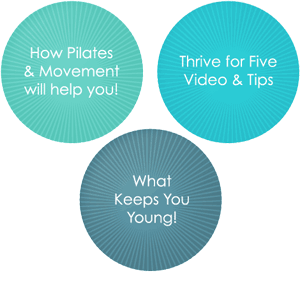How Physical Fitness Can Promote Successful Addiction Recovery
By PSC On August 14, 2018 · Leave a Comment
What if the key to long-term sobriety was as simple as adopting a physical fitness routine? Well, it just might be! Several studies have discovered a link between exercise and reduced rates of substance abuse. Specifically, aerobic exercise helps promote brain repair and can even boost the mood of recovering addicts. Even small amounts of exercise every day can support people struggling through a tough recovery process.
Physical Fitness Benefits Your Brain
Though exercise has numerous benefits on your brain, a couple key mechanisms can specifically help you heal from addiction. First, exercise improves the functioning of higher brain processes such as those that regulate behavior, planning, and problem solving. These cognitive functions are often weakened by substance abuse. Exercise can also increase your willpower, improving your ability to avoid temptations and stick to healthy habits instead. Furthermore, exercise helps you control your emotions and improves your short-term memory.
Many recovering addicts suffer from mental health disorders such as anxiety and depression. Luckily, exercise can also help with that! According to the Anxiety and Depression Association of America, physical fitness reduces levels of anxiety, stress, and depressive symptoms and even increases your pain tolerance. Many abused substances have these same effects, so exercise may work as a healthy coping alternative to self-medicating with drugs.
Aerobic Exercise Can Prevent Relapse
Discovering an exercise routine that you enjoy is vital to helping you keep it up. If you’re exercising for the mental health benefits, opt for aerobic exercises. Some of the best are running, hiking in the forest, and yoga. Running causes our bodies to release many feel-good hormones, promoting a long-lasting positive mood. In fact, 74 percent of people who run say that it has improved their mental health.
Meditative Exercise Is Calming for the Brain
Hiking in the woods is beneficial because of the calming effects that nature has on our brains. Many studies have found that walking in a forest is more effective at reducing levels of stress hormones in the body when compared to being in an urban environment. Likewise, Pilates is a wonderful complementary treatment to addiction recovery. Developed in the early 20th Century, Pilates is a form of exercise that involves controlled movement and connects the mind and body. It can help you enhance your self-awareness, concentration, and self-control—all factors that contribute to recovery.
Eating Clean Helps Heal Your Mental Health
What you eat has an enormous impact on your mental health, so try to clean up your diet as you support your brain through addiction recovery. Eat more fruits and vegetables on a daily basis. These foods contain high levels of vital nutrients that our brains use for producing hormones involved in mood regulation. One Green Planet recommends dark, leafy greens and colorful root vegetables for their high nutritional value.
Healthy carbohydrates including sweet potatoes, oats, and quinoa help our body boost production of the feel-good hormone, serotonin. These complex carbohydrates are also rich in B vitamins, which help keep our brain chemicals balanced and prevent depression. It can also be helpful to introduce foods high in omega-3 fatty acids into your diet. These benefit your brain and can help it repair itself from the effects of substance abuse.
Create a Healthy Routine That Lasts
A healthy routine is easy to start and hard to maintain, but sticking to your routine in the long term will help you develop healthy habits that last. Don’t wait for motivation to find you before you exercise. Instead, practice self-discipline and reap the rewards of accomplishment. It can be helpful to write down your routine so you don’t feel overwhelmed by everything you have to do each day. Focus on a couple of things you want to change, such as getting more exercise or taking the time to cook healthy meals, and then develop a routine around those goals.
Fitness is a wonderful health-boosting supplement to any physical illness treatment. Recovery from substance abuse is no exception. Everyone can benefit from some exercise and mental health care in their lives. A recovering addict can make their transition to sobriety a little smoother by supporting their healing body and mind.
Contributed by Susan Treadway, founder of www.rehabholistics.com.

